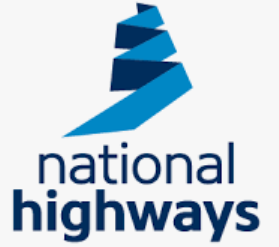
New Collaborations: TAS-S and National Highways
On the 18th January, RS3 had our first exploratory workshop with National Highways, which represents the beginning of our new partnership over the next 8 months. It is already clear that this collaboration promises to be exciting and hugely valuable for TAS-S. But collaboration is not just a one-way street. One of the broader aims of our work with National Highways is the co-creation of an ethical toolkit, which offers guidance, tools, and recommendations for the increasing amount of automation that will become part of the UK’s road, manufacturing, and construction infrastructures.
The workshop provided space for people across National Highways to give us more insight into their ongoing projects. These include areas such as connected autonomous vehicles (CAV), connected and autonomous plant, digital roads, public engagement, and cybersecurity. This fed into the main workshop activity, a value mapping exercise, which helped to visualise the key priorities and issues National Highways are tackling, and how they connect.
The discussions in the workshop were extensive and wide-ranging, covering a plethora of interconnected and complex challenges, opportunities, and priorities in National Highways’ future. What both moderators and participants shared was an acute awareness of the need for proactive, ethically informed practices when it comes to designing, implementing and governing secure automation across National Highways’ remit. Some of the most prominent themes we came across together are detailed in the tabs below.
Here are some links to National Highways digital roads initiatives and more on their approach to innovation.
You can also explore our Miro Board.
As autonomous systems become increasingly complex, growing in number and in type, the supply chains that sustain manufacturing, transport, logistics, and maintenance, also grow in complexity. One huge supply flow that’s only going to attract more demand is data. Managing data flows in secure, responsible, and ethically sound ways is a central challenge, especially when developing digital roads and CAVs that will be used by customers.
Many of our discussions involved how National Highways can respond to the changing landscape of automobility in the UK. This includes how it will present itself to the public, and what kinds of responsibilities it will claim as an organisation. Central to this changing organisational identity is a commitment to being an active part of people’s everyday activities, helping to inform decision making, policy and industry standards.
There is already a large and rapidly expanding amount of debate and discussion around autonomous vehicles, in academic literature and popular media. The prospects and challenges of connected and autonomous plant are less present. It is very likely that the impacts on manufacturing, labour, infrastructure, and culture will be significant. “On the ground” expertise could strengthen Trusted Autonomous Systems Security research bringing wider benefits to the research and applied sectors. This could contribute to Ethical, Legal, and Social (ELSI) guidance that can be utilised by National Highways and their partners when consulting with industry.
As the technological possibilities continue to inflate, it is clear that National Highways also want to be a leader in public engagement and advocacy. Customer protection is at the core of their values, and together we hope to create opportunities to engage with publics as part of this collaboration.
To help address some of these issues in more detail, RS3 is planning more workshop style collaborations, as well as other engagements with National Highways. We couldn’t be more thrilled to see where these collaborations take us, learn more from the National Highways team, and work together contributing to more secure, more ethical, autonomous system futures.
On 6th May, Lancaster-based colleagues from TAS-S Research Strand 3 (RS3) and National Highways colleagues returned to cyberspace to meet for the second workshop in our collaboration. After opening many exciting avenues of discussion in the first workshop back in January, this second meeting gave us a chance to dive deeper into some key themes and areas of work which National Highways are currently managing. While in this work there are many issues of interest to us as researchers, that could likely fuel endless discussions, we organised this workshop around two core themes: Organisational Adaptation, and Public Engagement.
Read more about this workshop in our dedicated blog.